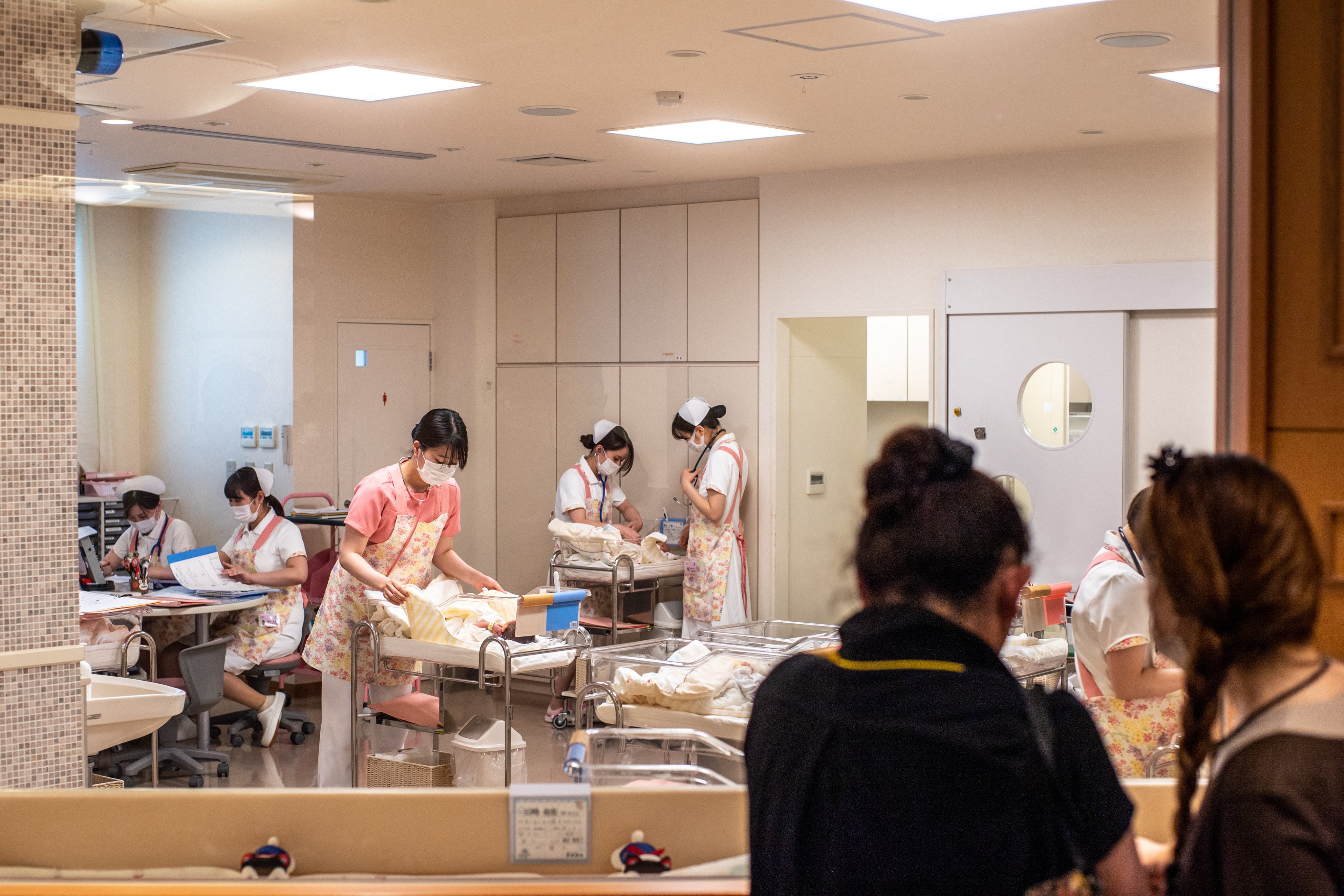Why Japan is still clinging to ‘excessive’ Covid-19 visitation curbs at hospitals
‘It’s unthinkable to me that they’re still this strict,’ a doctor says amid growing calls to ease restrictions

Much of the world may have moved on from the coronavirus pandemic, but a painful legacy lingers in Japan: hospitals continuing to restrict patient visitations, even in the case of people wishing to see terminally ill loved ones.
In early 2025, Japan marked five years since its first Covid-19 case, after which the disease claimed more than 130,000 lives up until August 2024.
Infections have reappeared in seasonal waves even after the government downgraded the threat in May 2023 and placed Covid-19 in the same risk category as seasonal influenza.
For families who want to see hospitalised loved ones, Japan appears to be stuck in time. Hospital websites continue to post “Covid-19” bulletins about visitations such as requiring masks and temperature checks, setting time limits and restricting the number of visitors.
Now a group of doctors and social workers is demanding the restrictions be abolished or curbed, calling them a violation of human rights.
“It’s unthinkable to me that they’re still this strict,” said a doctor in his 30s from the Tokyo metropolitan area on condition of anonymity, expressing a mixture of surprise and disgust at the continued Covid policies.
In January, his wife’s mother was hospitalised with cancer at a facility in Akita prefecture, northeastern Japan.
The hospital had said that visitation was only available for “two family members”, and his wife was not permitted to see her own mother – at least at first on hospital grounds.
Hopeful they would be allowed to see her after she was moved to a restriction-eased palliative care ward in March, they went to Akita with their child to visit the wife’s mother.
But when the Tokyo doctor tried explaining to the hospital staff that “this might be the last time” for the woman to see her grandchild, they refused, arguing that children are not permitted due to their high risk of spreading infection, saying rules are rules.
However, after the family persisted, the hospital said the woman “can meet with anyone if she leaves the hospital temporarily”.
A “nursing taxi”, a car service catering specifically for persons with special needs, was hastily arranged to bring her home where she was able to see her daughter, grandchild, family and friends.
The doctor was not at all satisfied with the effort.
“If this was supposed to be an infection control measure, the hospital’s response contradicts itself,” he said, adding even pets are allowed on hospital visitations. “How is it that patients are allowed to see their dogs and cats but not their grandchildren?”
The doctor is an infectious disease specialist and was involved in the pandemic response at a Tokyo hospital. Looking at the situation overseas, he said, “Japan’s restrictions on visitation are excessive. I think there is an aspect of the medical field here that thinks it is easier not to have hospital visitations.”
The health ministry has recommended that “consideration be given to ensuring opportunities for visits as much as possible, keeping in mind both the importance of visitations and infection-control measures”, but has left specific policy measures to individual hospitals and medical facilities.
Last fall, a group of doctors who comprise an association for post-Covid medical and welfare issues examined the situation at university and Red Cross hospitals across the country. It found that most had some restrictions still in place. There were some that do not allow visitations at all.
Kazuya Iwai, co-chair of the association and chief doctor of infection control at Shizuoka City Shizuoka Hospital in central Japan, said there were no restrictions at his hospital and children were also permitted to visit patients.
Although the hospital does not require masks, there is no difference in infection rates compared with other hospitals, he added.
“There is no scientific evidence that visitation restrictions are effective in preventing the spread of infections,” Iwai said.
“It is an important right for hospitalised patients to visit their loved ones, but patients and their families are reluctant to say so because they feel an obligation since they are being cared for,” he pointed out.
Although there are moves to gradually ease restrictions, he warned, “If the easing is at the discretion of the hospitals, there is a risk that they will return to strict policies depending on their situations of infection and other factors. The public needs to raise its voice and speak out.”
“Not being able to see family members in their final days is a human rights violation. The disadvantages are far greater than the advantages,” he said.